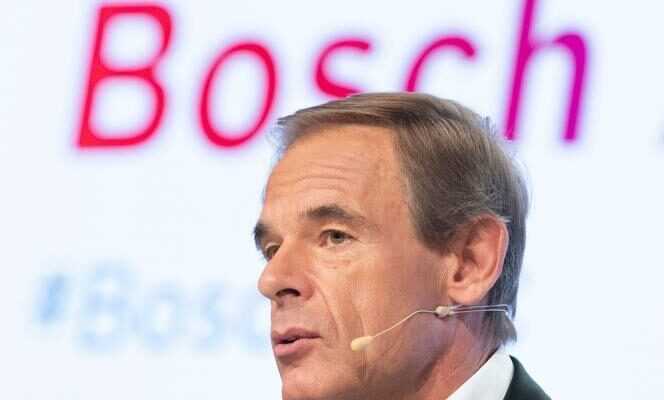A page is turning at Bosch, the world’s leading automotive supplier. Volkmar Denner, who has headed the company since 2012, will step down at the end of the year. He will be replaced at 1er January 2022 by the current director of the mobility department, Stefan Hartung, announced the Stuttgart group on Thursday, June 24. He will be responsible for continuing the major project undertaken by Mr. Denner: the transformation of the traditional industrialist emblematic of Made in Germany, a unique heavyweight of its kind with 71.8 billion euros in turnover, but unlisted on the stock exchange, into a cutting-edge technological group.
This change is that of German industry as a whole. Bosch, a company dominated by engineers, is an example of this revolution carried out for ten years among other German manufacturers, such as Siemens or Volkswagen. It is long and sometimes painful: it involves new technologies, but above all a rethought to traditional German values in industry.
Where Bosch prided itself since its origins in hunting down quality defects, even if it means delaying the release of an innovation for several months, it has incorporated more rapid experimentation and risk-taking, drawing inspiration from Apple or Amazon methods. Where mastery of the vehicle’s mechanical system was the top discipline, Bosch brought software and connectivity to the fore. He has integrated the rules of cloud computing, external applications and software platforms into his organization, even if it means entering into partnerships with groups that have a better understanding of these technologies. In February 2021, it partnered with Microsoft to create a platform for connecting vehicles to the cloud.
As AIoT champion
Volkmar Denner will go down in Bosch history as the one who laid the foundations for this transformation. “When he was appointed to take over the management of the group in 2012, the reasons for this choice were perfectly clear: he was the only one, at the time, who understood the challenges of the digital revolution”, testifies an executive of the group who meets him regularly.
Its strategy: to equip all objects produced by Bosch with sensors, in order to connect them via the Internet. It’s the Internet of Things, or IoT. And, beyond that, being able to process and use all the data thus collected, in order to make them intelligent. It’s artificial intelligence (AI). The combination of the two technologies (AIoT) should allow Bosch to master the physical object and the software, as well as the connection between the two. Bosch sees himself as an AIoT champion.
You have 41.06% of this article left to read. The rest is for subscribers only.
